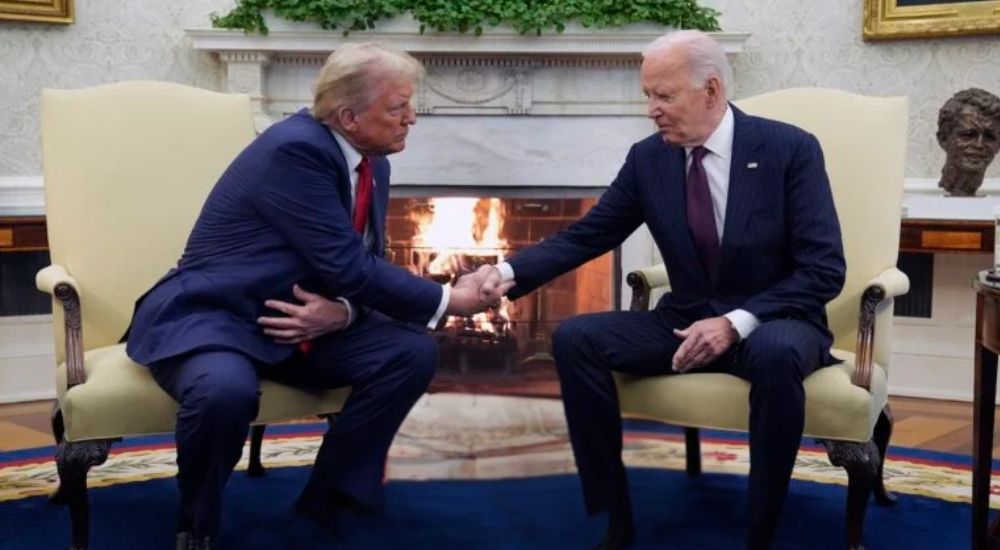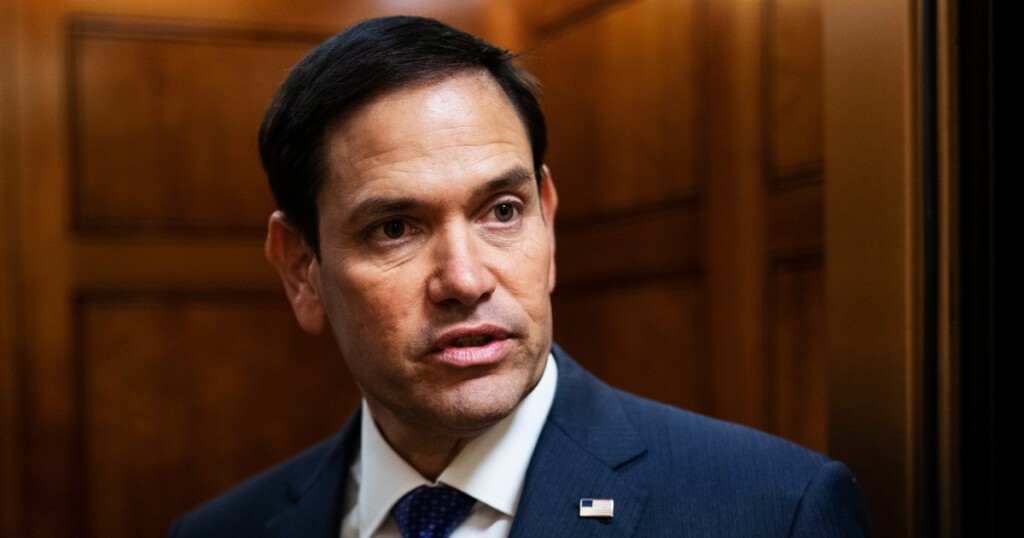Trump and Vance think anti-immigrant hate is good politics. They’re mistaken.

Politics tamfitronics
Over the weekend, Ohio senator and vice presidential nominee JD Vance made a stunning and unintentional admission: He’s a liar.
For more than a week, Vance, former President Donald Trump and many of their allies have spread falsehoods about the town of Springfield, Ohio, and its Haitian immigrant community. Most infamously, Trump last week repeated the now oft-debunked claim that Haitian migrants in the town are stealing and eating pet dogs and cats.
But on CNN, Vance gave away the GOP’s game. “If I have to create stories so that the American media actually pays attention to the suffering of the American people, then that’s what I’m going to do.” He claimed that the “American media” ignored the “problems in Springfield” associated with the impact of Haitian migration on public services in the town until “Donald Trump and I started talking about cat memes.” Vance tried to explain away his verbal slip, but he couldn’t avoid the truth: “creating stories” is another way to say “making stuff up.”
Most insidious is the effect on the local Haitian community, which is increasingly under siege.
The consequences for such lies are both obvious and frightening. A steady stream of bomb threats has forced Springfield officials to temporarily shutter government offices, hospitals, elementary and middle schools, and two local colleges. On Monday, a local festival celebrating “diversity, arts and culture,” was also canceled — a fitting monument to Trump and Vance’s racist attacks.
Most insidious is the effect on the local Haitian community, which is increasingly under siege. As Vance’s rhetoric has made clear, his concern is not the Haitians’ immigration status: They are in America legally. Rather, the issue is their skin color and background of those moving to Springfield. As the vice presidential nominee argued on X this weekend, the real question about Springfield is, “Should we drop 20,000 people from a radically different culture in a small Ohio town in a matter of a few years?”
Never mind that, like so many immigrant communities before them, the Haitian community in Springfield has more than acclimated itself to their new homes. Their “positive influences” on the town have been noted by everyone from Springfield’s Republican mayor and local business leaders to Ohio’s Republican governor, who has decried the Trump/Vance-led attacks as “garbage.”
But would Vance make such proclamations if the 20,000 people were, say, from Norway? Would he make the same argument about urban gentrification and thousands of white yuppies moving into a predominately Black or Hispanic community?
When Vance claims that “what is happening in Springfield is coming to every town and city in this country if Kamala Harris’ open border policies are allowed to continue,” his intent is not difficult to discern. His incessant focus on “illegal immigration” and problems “at the border” is nothing more than a racist dog whistle to MAGA voters. And it’s one that minority communities have seen play out in America for centuries.
The last nine years of American politics have shown us that Trump and his minions only sing from one anti-immigrant hymnal.
It’s also quite purposeful. As Marc Caputo reported Sunday for the Bulwark, “Privately, Trump aides think it’s a net plus,” writes Caputo. “The longer the discussion is about migrants, the less it is about tougher topics for them. ‘We talk about abortion; we lose. We talk about immigration, we win,’ said one Trump adviser.”
“But what about the blowback from spreading an incendiary story for which there is no evidence?” Caputo asks. “‘We’ll take the hit to prove the bigger point,’” the adviser responds. NBC News reports that Trump is planning to visit Springfield “soon,” which surely will fan the flames even more.
Immigration is indeed an effective policy issue for Trump. In the most recent ABC/Ipsos poll, he polled 10 points better on it than Harris. But he also polls seven points better than his Democratic rival on the economy and inflation. Not only are those issues the top concerns for undecided voters, but they have the added benefit of not utilizing unabashedly racist sentiments. To side with Trump and Vance because of concerns over the economy is asking a heckuva lot less of voters than siding with them over naked immigrant bashing. The former doesn’t require a cleansing shower after wading in the political sewer.
The last nine years of American politics have shown us that Trump and his minions only sing from one anti-immigrant hymnal. Since 2016, immigrant-bashing has been the issue that most consistently unites GOP candidates — and it’s one that has taken on an even darker hue this cycle, with routine talk of immigrant “invasions” into the U.S.
There is, however, less evidence that it’s an effective political strategy. In 2018, Trump-supported candidates regularly used xenophobic attack lines in their campaigns. This was the election of “migrant caravans” and “bad hombres.” It didn’t work. Trump trotted out the usual dog whistles in 2020. So did Republican candidates in 2022. Neither led to political success. Maybe 2024 will be different, but the evidence is against xenophobic broadsides against immigrants as a route to political success.
In fact, the constant attacks on immigrants and the rising tensions in Springfield and around the country could be a net negative for Trump. The unending negativity that now defines the Trump campaign, the constant feeling of chaos and fatigue around the former president has a profound effect. The demagoguing over Springfield may energize MAGA world but, for the anti-Trump wing of the electorate, it’s a reminder of everything loathsome about the former president. Unfortunately, for Trump and now Vance, shame has always been an emotion in short supply, so there’s little reason to expect the racist, immigration bashing to stop. There’s also not much reason to think it’ll work.

Michael A. Cohen
Michael A. Cohen is a columnist for MSNBC and a Senior Fellow and co-director of the Afghanistan Assumptions Project at the Center for Strategic Studies at the Fletcher School, Tufts University. He writes the political newsletter Truth and Consequences. He has been a columnist at The Boston Globe, The Guardian and Foreign Policy, and he is the author of three books, the most recent being “Clear and Present Safety: The World Has Never Been Better and Why That Matters to Americans.”
















